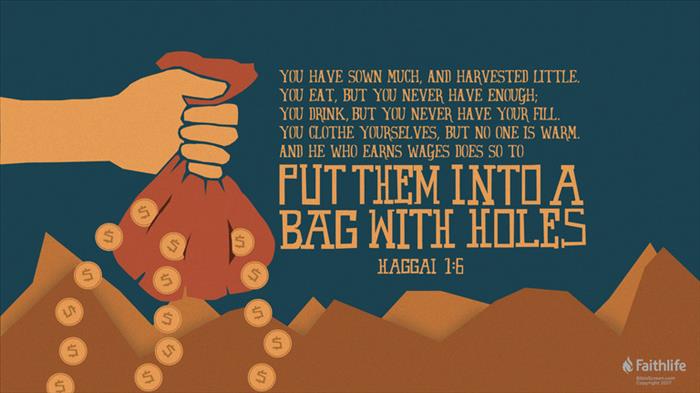 | ||
Similar | ||
Prophecy haggai and rebuilding of the temple
Haggai /ˈhæɡi.aɪ/ (Hebrew: חַגַּי, Ḥaggay or Hag-i, Koine Greek: Ἀγγαῖος; Latin: Aggaeus) was a Hebrew prophet during the building of the Second Temple in Jerusalem, and one of the twelve minor prophets in the Hebrew Bible and the author of the Book of Haggai. His name means "my holiday". He was the first of three post-exile prophets from the Neo-Babylonian Exile of the House of Judah (with Zechariah, his contemporary, and Malachi, who lived about one hundred years later), who belonged to the period of Jewish history which began after the return from captivity in Babylon.
Contents
- Prophecy haggai and rebuilding of the temple
- Haggai and officials of his time
- Haggai in Jewish tradition
- Liturgical commemoration
- Haggai in Freemasonry
- References

Scarcely anything is known of his personal history. He may have been one of the captives taken to Babylon by Nebuchadnezzar. He began his ministry about sixteen years after the return of the Jews to Judah (ca. 520 BC). The work of rebuilding the temple had been put to a stop through the intrigues of the Samaritans. After having been suspended for eighteen years, the work was resumed through the efforts of Haggai and Zechariah. They exhorted the people, which roused them from their lethargy, and induced them to take advantage of a change in the policy of the Persian government under Darius the Great.

The name Haggai, with various vocalizations, is also found in the Book of Esther, as a eunuch servant of the Queen.

Haggai and officials of his time

Haggai supported the officials of his time, specifically Zerubbabel, the governor, and Joshua the High Priest. In the Book of Haggai, God refers to Zerubbabel as "my servant" as King David was, and says he will make him as a "signet ring," as King Jehoiachin was (Haggai 2:23; cf. Jer 22:24). The signet ring symbolized a ring worn on the hand of Yahweh, showing that a king held divine favour. Thus, Haggai is implicitly, but not explicitly, saying that Zerubbabel would preside over a restored Davidic kingdom.
Haggai in Jewish tradition
Haggai, in rabbinic writing, is often referred to as one of the men of the Great Assembly. The Babylonian Talmud (5th century CE) mentions a tradition concerning the prophet Haggai, saying that he gave instruction concerning three things: (a) that it is not lawful for a man whose brother married his daughter (as a co-wife in a polygamous relationship) to consummate a levirate marriage with one of his deceased brother's co-wives (a teaching accepted by the School of Hillel, but rejected by the School of Shammai); (b) that Jews living in the regions of Ammon and Moab separate from their produce the poor man's tithe during the Sabbatical year; (c) that they accept of proselytes from the peoples of Tadmor (Palmyra) and from the people of Ḳardu.
Liturgical commemoration
On the Eastern Orthodox liturgical calendar, Haggai is commemorated as a saint and prophet. His feast day is December 16 (for those churches which follow the traditional Julian Calendar, December 16 currently falls on December 29 of the modern Gregorian Calendar). He is also commemorated, in common with the other righteous persons of the Old Testament, on the Sunday of the Holy Fathers (the Sunday before the Nativity of the Lord).
Haggai is commemorated with the other Minor prophets in the Calendar of saints of the Armenian Apostolic Church on July 31.
Haggai in Freemasonry
In the Masonic degree of Holy Royal Arch Haggai is one of the Three Principals of the Chapter. Named after Haggai the prophet and is supported by Zerubbabel, Prince of the People, and Joshua, the son of Josedech, the High Priest.
